What Happens To Tattoos After Weight Loss?
Discover how shedding extra pounds can affect your tattoo’s appearance and vibrancy.
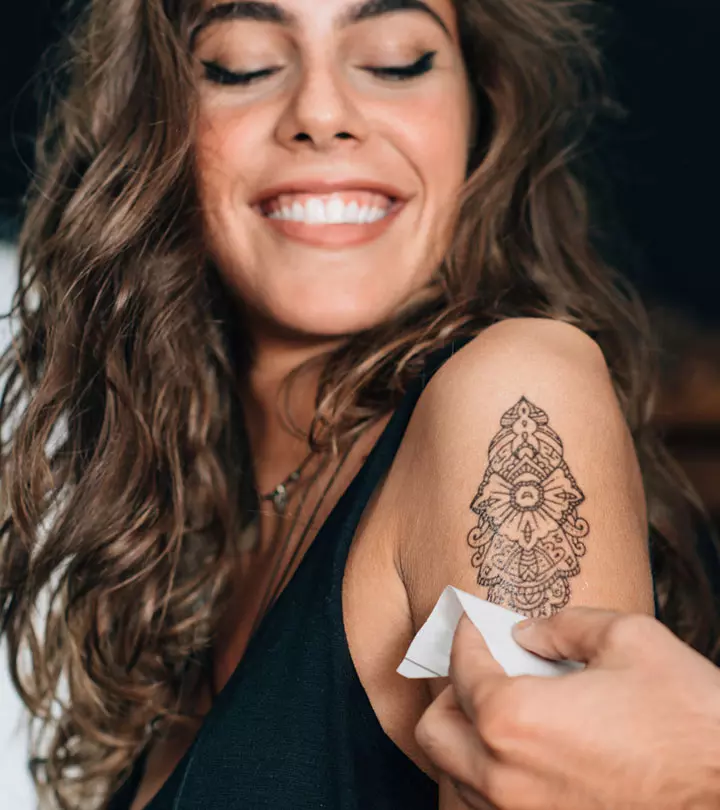
Image: Shutterstock
It is a wonderful feeling when you finally achieve the body of your dreams! However, the changes in your body shape can alter the location, appearance, and shape of your tattoos after weight loss. So, should you wait after losing those stubborn pounds to get inked or just go ahead and do it anyway? Constantly going back and forth about this can leave you feeling more confused. But fret not. We are here to help you! Check out this article to learn exactly what happens when you lose weight, how to minimize tattoo distortion, and the best places to get a tattoo if you are losing weight. Scroll down to know more about preserving and maintaining your body art!
In This Article
What Happens To Tattoos When You Lose Weight?
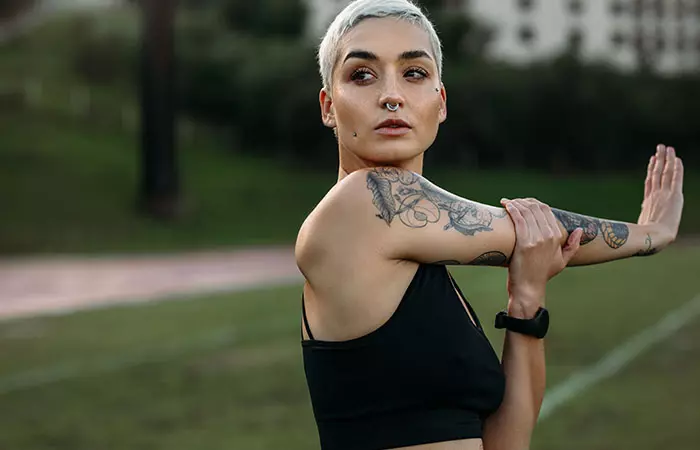
One of the biggest changes one can experience after shedding those pounds is in the size, location, and intricacies of the tattoo design. For instance, if you have a tattoo on your thigh, you may see the tattoo shift to the front or back of the thigh after extreme weight loss. Similarly, a tattoo located on a smaller area of your thigh may appear bigger or take up more space after drastic weight loss. This is due to the reduction in thigh size, appearing to cover a larger area than before.
Flashy stripes or stubborn stretch marks on your skin are another effect of weight loss. The shrinking skin can break the ink particles, distort the ink design or change the very position of your tattoo. Similarly, gaining weight can also lead to tattoo distortion.
Laura, a blogger, shared how weight changes changed the way her tattoo looked on her body. She wrote, “Since then, my body has changed, gaining and losing (more gaining to be honest), stretching, and the tattoos still look lovely to me (i).”
Losing those extra pounds will surely impact the way your tattoo looks. So, should you wait till you lose weight to get inked? Find out in the next section.
Key Takeaways
- Rapid and significant weight loss can change the size, appearance, and the location of tattoos.
- Areas such as the upper torso, forearms, and lower legs are less prone to stretching and are ideal for tattooing after weight loss.
- Touch-ups, cover-ups, or other body modification processes can help enhance the appearance and vibrancy of tattoos after weight loss.
Should You Wait Until You Lose Weight To Get A Tattoo?
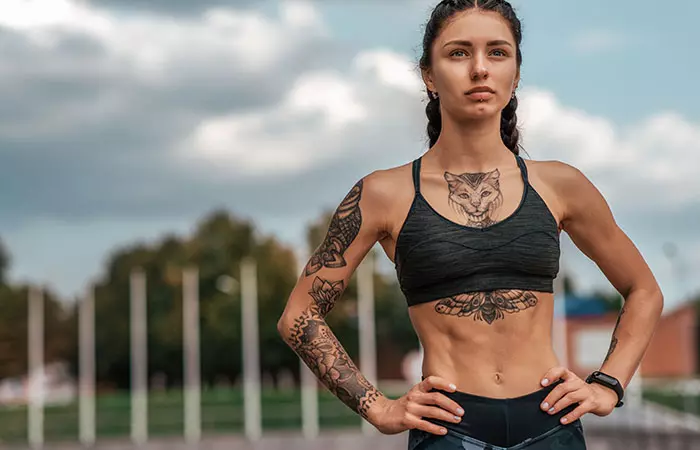
This completely depends on your weight loss goal and preferences. If you want to hit the gym and shed a bunch of weight or plan to undergo surgery, you may wait till you lose the desired weight to get inked. However, if you want to really get that body art, then you can do so before shedding those pounds. However, keep in mind that your fitness goals will definitely affect the end result. Hence, think carefully before you come to a decision.
Any changes during weight loss can affect the tattoo’s appearance. But fret not. Take a look at some simple tips for reducing its effects of tattoo distortion after weight loss below.
How To Minimize The Impact Of Weight Loss On Your Tattoos
One of the most effective ways to minimize tattoo distortion is by keeping the skin moisturized. Moisturization can prevent dryness, reduce itching, and improve the overall skin health and appearance of your tattoo after weight loss. It also keeps the skin soft and supple. Moisturizers containing coconut oil or shea butter can provide intense moisturization, repair the skin barrier, and promote wound healing (1), (2). In addition to this, you can also add collagen-boosting foods like citrus fruits, leafy greens, bone broth, etc. to your meals to help your skin stay firm and elastic as you lose weight.
One can also consider going for a tattoo cover-up or modification of the existing design to help it blend smoothly with your changed skin. You can also opt for tattoo touch-ups to refresh and brighten your current tattoo without changing the actual design.
 Pro Tip
Pro TipSo, if you plan on shedding that extra weight and still want to get inked, here are some of the best places where you can get a tattoo.
Best Places On The Body To Get A Tattoo If You Are Losing Weight

Here are some of the best tattoo locations you can go for if you are planning to lose weight:
- Upper Arms
These areas of the body involve a lot of movement and are less prone to stretching or shrinking. Also, they are the best place for hiding arm tattoos.
- Forearms
This area may experience some size changes but it is a relatively stable area, making it perfect for beautiful wrist tattoos.
- Upper Back
The area around the spine is less prone to significant size and weight changes.
- Torso
The relatively flat surface makes it easier to get tattoos and reduces the risk of tattoo distortion due to extreme fluctuations in weight.
 Pro Tip
Pro Tip- Lower Legs
Areas such as the calves are generally considered stable and are suitable for lower-leg tattoo designs.
Significant body changes and skin tightening can affect the location and size of your tattoos after weight loss. Whether you want to get inked before or after shedding those pounds is your personal choice. However, if you decide to lose weight and get inked as well, go for areas such as the upper arms or the back to reduce the risk of tattoo distortion. However, if you notice some significant tattoo distortions after your weight loss, visit a professional tattoo artist to see if you need to modify the designs or not. Hence, do your research about the process thoroughly and seek expert guidance to help you make an informed decision.
Frequently Asked Questions
Can scars from weight loss surgery affect tattooing?
Scars from weight loss surgery have a different texture and are more sensitive to pain than unscarred skin. Therefore, tattooing over the scar tissues or healing skin can increase the risk of infection and cause potential complications. Hence, consult a dermatologist and a tattoo artist with experience working on scars before getting inked.
Can I get a tattoo if I have loose skin after weight loss?
Yes, you can get a tattoo on loose skin after weight loss. However, it might be tricky as the design may stretch along the skin and distort it further. Also, the ink may not hold well in loose skin. Hence, consult a skilled tattoo artist for proper guidance on the appropriate place to get your tattoo.
Will the tattooing process be more painful in areas with loose skin?
This will depend on the individual’s pain threshold, location of the tattoo, type of tattoo, and skin type. However, an individual with loose skin who has already undergone a tattooing process or a weight loss surgery might be more sensitive to pain. Hence, think carefully and consult an expert before getting a tattoo.
Can tattoos help hide stretch marks from weight loss?
Tattoos are a great way of concealing stretch marks. Placing your stretch mark tattoos strategically, along with the right set of colors can help reduce the visibility of the stretch marks caused by weight loss.
Will weight loss affect the healing time of my tattoo?
Weight loss may not directly impact the healing time of the tattoo. However, factors such as the individual’s general health, skin health, and adherence to aftercare practices will determine the healing process.
Illustration: What Happens To Tattoos After Weight Loss?

Image: Stable Diffusion/StyleCraze Design Team
Rapid weight gain or loss may cause a noticeable shift in the tattoo’s location. Check out this informative video to learn how weight fluctuations affect your tattoo’s vibrancy and quality.
Personal Experience: Source
StyleCraze's articles are interwoven with authentic personal narratives that provide depth and resonance to our content. Below are the sources of the personal accounts referenced in this article.
(i) Morbid, Part 4: Tattooshttps://lauradiazdearce.medium.com/morbid-part-4-tattoos-456c52a92be6
References
Articles on StyleCraze are backed by verified information from peer-reviewed and academic research papers, reputed organizations, research institutions, and medical associations to ensure accuracy and relevance. Read our editorial policy to learn more.
- Anti-Inflammatory and Skin Barrier Repair Effects of Topical Application of Some Plant Oils
https://www.ncbi.nlm.nih.gov/pmc/articles/PMC5796020/ - The Role of Moisturizers in Addressing Various Kinds of Dermatitis: A Review
https://www.ncbi.nlm.nih.gov/pmc/articles/PMC5849435/
Read full bio of Brik Rangel
Read full bio of Joyce Joyson
Read full bio of Eshna Das
Read full bio of Aparna Harry





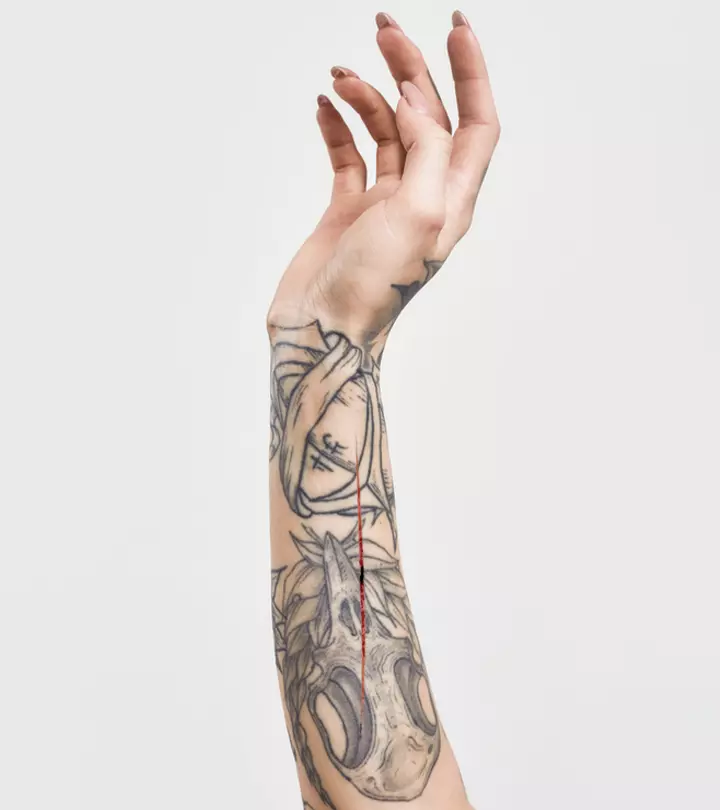




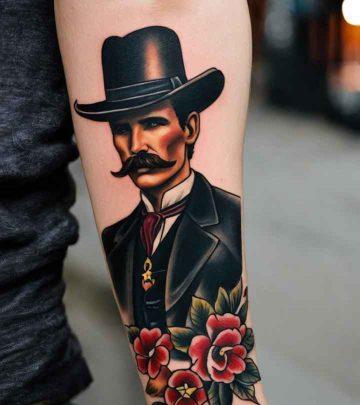
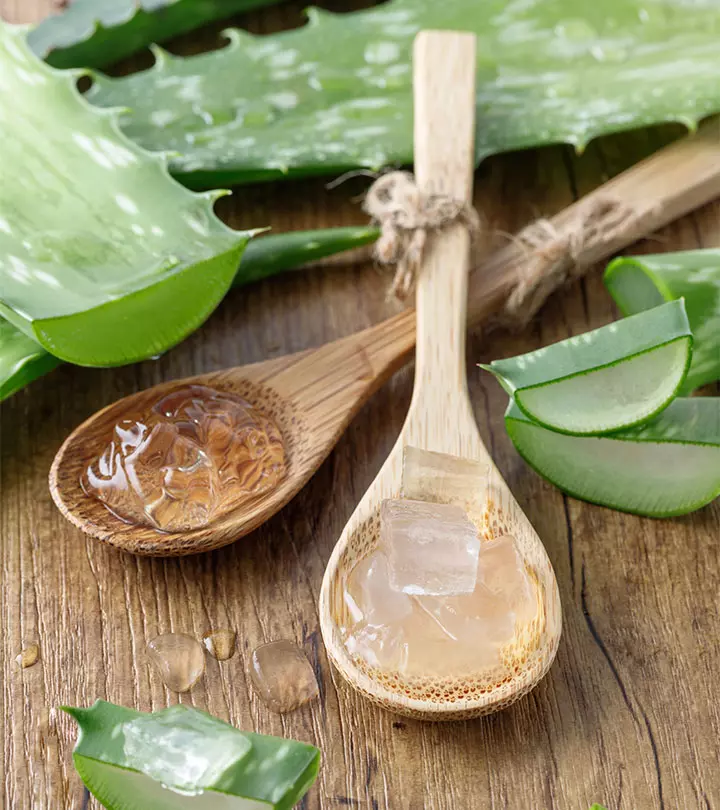
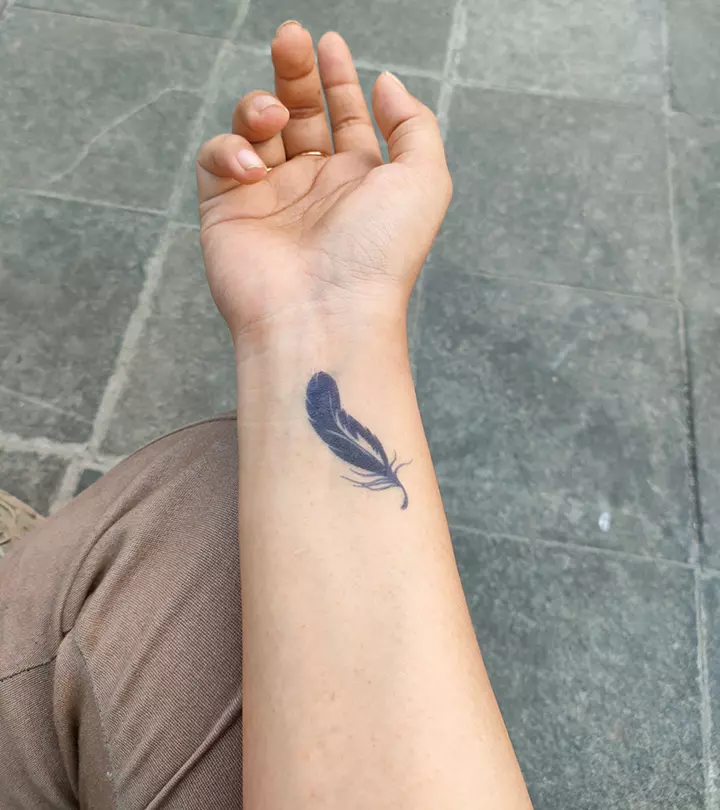
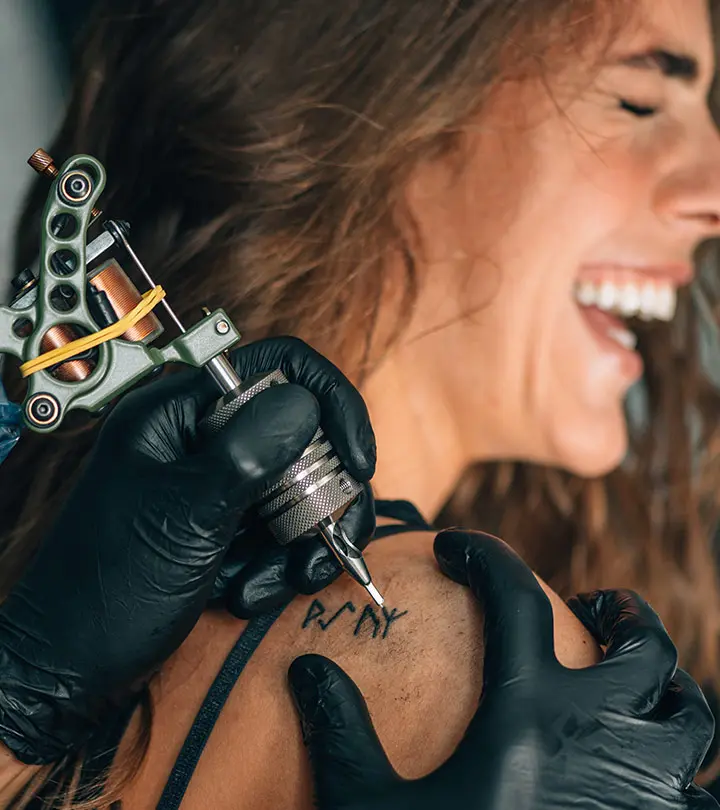

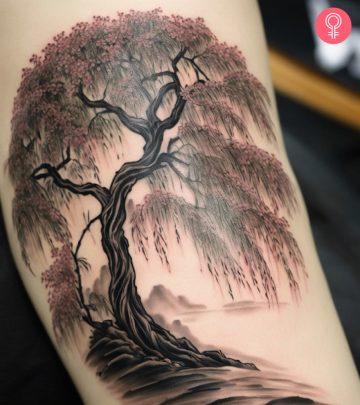


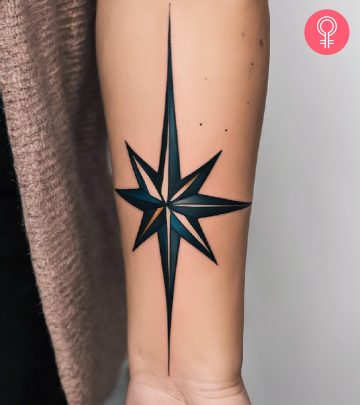
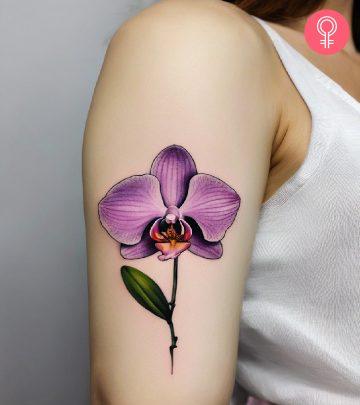




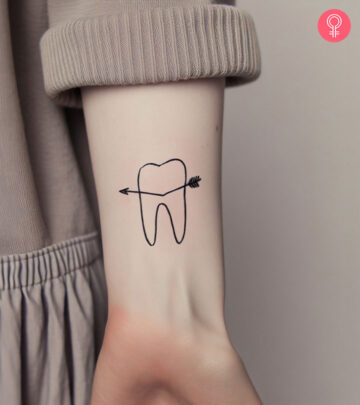
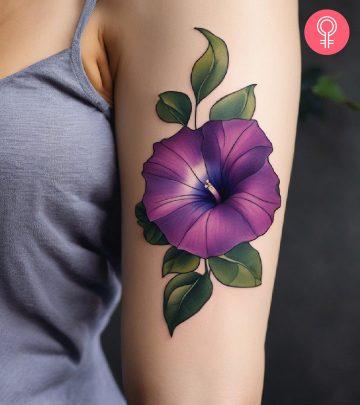
Community Experiences
Join the conversation and become a part of our empowering community! Share your stories, experiences, and insights to connect with other beauty, lifestyle, and health enthusiasts.